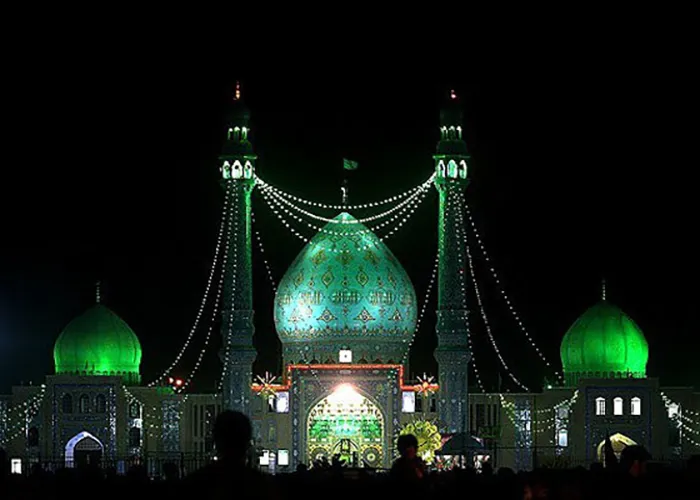Events of the Week – Volume02 Issue07
12th – 18th February 2025 (13th – 19th Sha‘bān)
This week in Islamic history is marked by momentous events, particularly those connected to the Ahlulbayt (a) and prominent scholars. These occurrences provide valuable lessons in faith, resistance, and devotion, serving as a reminder of the struggles and triumphs of the Islamic Ummah.
14th February 2025 – 15th Sha‘bān
Birth of Imam al-Mahdi (atfs) (255 AH/869 CE) – The Saviour of Humanity
One of the most blessed nights of the year, the 15th of Sha‘bān marks the birth anniversary of Imam al-Mahdi (atfs), the twelfth and final Imam of the Ahlulbayt (as). His awaited return is central to Islamic eschatology, symbolizing the ultimate establishment of justice, peace, and divine rule on earth. Imam al-Mahdi (a) is believed to be in occultation and will reappear when the world is filled with corruption and injustice, bringing about a reign of righteousness and equity.
This night is a time of worship, supplication, and reflection for believers worldwide. Muslims gather for special prayers, recite supplications, and seek spiritual closeness to Allah. It is also a moment to renew their hope and faith in the promised return of the Imam. The 15th of Sha‘bān serves as a reminder of the ongoing struggle for justice and the anticipation of a world ruled by divine guidance and fairness.
World Day of the Oppressed
In recognition of the mission of Imam al-Mahdi (a), the 15th of Sha‘bān has been designated as the World Day of the Oppressed. This day serves as a reminder of the Imam’s (a) promise to rise and establish justice, eliminate tyranny, and bring peace to the world. Imam al-Mahdi (a) is believed to return when injustice and oppression are widespread, and his arrival will mark the end of suffering for the oppressed and the establishment of a just global society.
The observance of this day encourages Muslims to reflect on their responsibilities in the fight for justice and human dignity. It reinforces the duty of every believer to stand against oppression, advocate for the marginalized, and support movements that aim to eliminate injustice. On this day, Muslims are reminded of the goal of justice and equity, drawing inspiration from the awaited return of Imam al-Mahdi (a) to fulfil these ideals.
16th February 2025 – 17th Sha‘bān
Demise of Ayatollah Hasan ‘Ali Isfahani (Nukhudaki) (1361/1942)
Ḥasan ʿAlī Nukhudakī Iṣfahānī was a Shi’a scholar and mystic, renowned for his spiritual practices and self-discipline. His father was famous for performing wonders and having his du’as answered by God. Hasan ‘Ali followed this path, benefiting from notable figures like Sayyid Ja’far Qazwini and Sayyid Murtada Kashmiri.
He studied various sciences, including philosophy, jurisprudence, and exegesis, under scholars such as Jahangir Khan Qashqa’i and Akhund Mulla Muhammad Kashi. Nukhudaki was also knowledgeable in occult sciences and dedicated time to helping spiritual seekers, offering du’as for their problems. Nukhudaki passed away on Sha’ban 17, 1361 (August 30, 1942). His funeral was attended by many people from Mashhad, and he was buried in the ‘Atiq courtyard of the holy shrine of Imam al-Rida (as).
Demise of Husayn b. Ruh al-Nawbakhti (326/938)
Husayn b. Ruh was the third of the four deputies of Imam al-Mahdi (atfs) during the Minor Occultation, a period when the Imam (ajfs) was hidden from the public eye but still maintained communication through his representatives. Husayn b. Ruh’s role was critical in preserving the connection between the Imam (atfs) and the Shia community during a time of political and social turmoil. As a trusted deputy, he acted as a liaison, conveying the Imam’s messages and guiding the believers. His leadership, wisdom, and deep knowledge of Islamic jurisprudence helped provide spiritual and practical guidance to the Shia community, ensuring their unity and commitment to the Imam’s teachings. Husayn b. Ruh’s tenure as deputy was marked by his unwavering dedication to upholding the principles of justice, faith, and loyalty to Imam al-Mahdi (atfs), ensuring the continued strength of the Shia community.
18th February 2025 – 19th Sha‘bān
Battle of Banu Mustaliq (6 AH/628 CE)
The Battle of Banu Mustaliq (6 AH/628 CE) was a significant event in early Islamic history. The Banu Mustaliq tribe, a subgroup of the Khuzaymah tribe, had plotted against the Muslims, threatening their security. When the tribe mobilized for an attack, the Muslims, led by Prophet Muhammad (s), responded swiftly to confront the threat. The battle took place near the well of Muraysi‘, and the Muslims achieved a decisive victory.
This victory played a crucial role in strengthening the Islamic community, consolidating their position in the Arabian Peninsula. It also demonstrated the importance of unity, strategic preparation, and discipline in the face of external opposition. The aftermath of the battle saw the capture of many prisoners, including women, who were treated with respect. The battle reinforced the idea that Muslims must remain vigilant and unified against any forces that sought,
Conclusion
This week in Islamic history reminds us of the sacrifices made by scholars, the resilience of the Muslim community, and the continuous struggle for justice. From the blessed birth of Imam al-Mahdi (a) to the resistance of the oppressed, these events inspire us to remain steadfast in faith and committed to upholding the values of Islam.
editor's pick
news via inbox
Subscribe to the newsletter.




